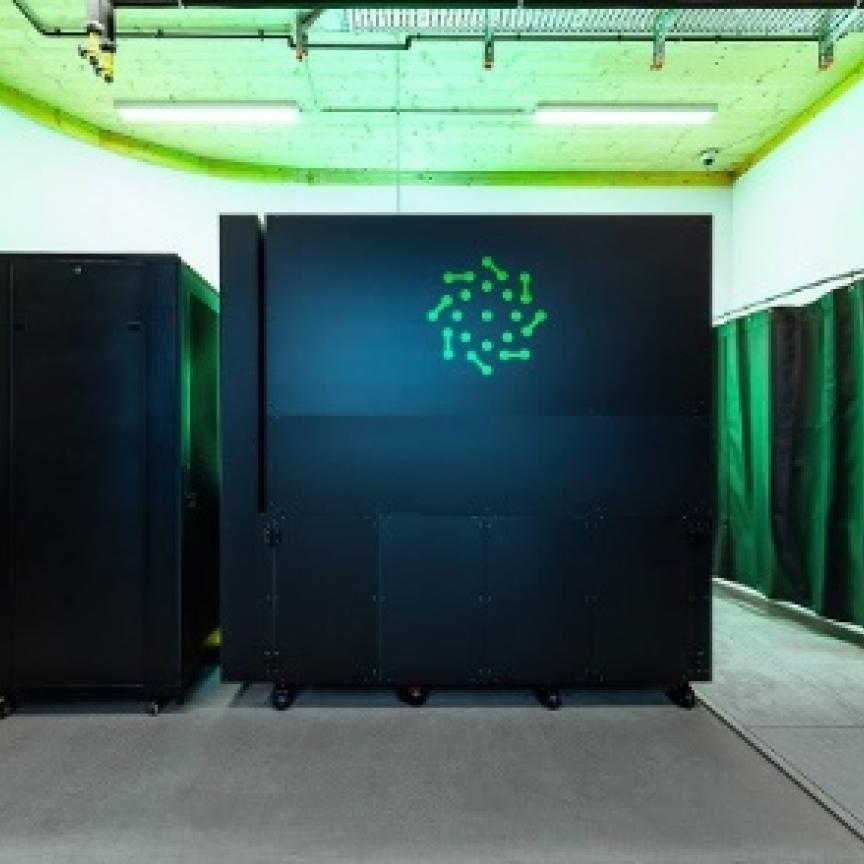Researchers at the University of Aberdeen will now benefit from a new supercomputer named 'Maxwell' which is supporting ground research at the University’s Centre for Genome-Enabled Biology and Medicine (CGEBM). The system also provides a centralised HPC system for the whole University with applications in medicine, biological sciences, engineering, chemistry, maths and computing science.
Dean Phillips, assistant director, digital and information services of the University of Aberdeen says: 'Aberdeen is a research-intensive university and we’ve already seen an increase of 50 per cent in registered users of our Maxwell HPC cluster. Having our own HPC system helps the University to attract new researchers, research funding and expand on existing programmes of research and teaching. It is highly beneficial for our researchers to have on-site access to HPC infrastructure, particularly when securing start-up funds. OCF’s Remote Admin Service is an extension of our team and really helps to ensure the smooth day to day running of our HPC cluster and dealing with support issues, user requests and keeping on top of software and security updates.'
University researchers will use Maxwell to rapidly analyse complex genomics datasets from known and novel organisms and help researchers to revolutionise the study of the Earth’s biodiversity and complex ecosystems important to health and disease, agriculture or the environment. It is estimated that only around 1 per cent of the Earth’s biodiversity is easily culturable in a laboratory, and there is little knowledge on most living organisms on the planet.
Dr Elaina Collie-Duguid, Manager, Centre for Genome Enabled Biology & Medicine at the University of Aberdeen comments: 'Genomics is a dynamic discipline that rapidly evolves into new applications and approaches to interrogate complex systems. The new HPC cluster, with its expanded capacity and advanced GPU capabilities, enables us to use new analysis methods and work at a much quicker rate than before. It really is an exciting time for genomics, which is revolutionising the study of organisms and complex ecosystems to address issues of global importance, and HPC is a critical tool for analysis of these data.'
With the use of HPC, researchers can analyse microbiomes associated with a diverse array of ecosystems, such as the human gut, fish important to Scottish aquaculture, glaciers, deep-sea sediments, soil and bioreactors for the production of sustainable and environmentally friendly biofuels. These studies could provide a new understanding of important and diverse biological processes such as antimicrobial drug resistance; pathogen detection, evolution and virulence; mechanisms of drug efficacy and toxicity; development; inflammation; tumorigenesis; nutrition and satiety; and degradation of hydrocarbons.
Scotia Biologics is working with the University’s CGEBM, using Maxwell’s capacity to speed up its existing pipeline and generating a more comprehensive dataset using genomics compared to traditional methods typically used in its field.
The new HPC system is also being used to teach graduates and post-graduate students in specialist subjects such as AI and bioinformatics, fields important to modern research and STEM careers, providing them with a unique opportunity to access HPC capacity. With 300 users, the cluster is providing a centralised HPC system to support all researchers and post-graduate students across the University.
The new HPC system is designed, integrated and managed by high performance compute, storage, cloud and AI integrator OCF. Russell Slack, managing Director of OCF comments: 'The new HPC cluster helps the University remain ahead of a fiercely competitive market. It attracts researchers, students and grants to its facility. Aberdeen’s investment in its HPC is a credit to its foresight in the importance of HPC in research that impacts people and everyday lives.'
Keith Charlton, CEO of Scotia Biologics states: 'As part of our drive to introduce new services to offer to the life sciences sector, Scotia is developing phage display library capabilities based around a growing number of animal species. With access to Maxwell, we’ve been able to quickly generate a large volume of data relatively inexpensively whilst significantly advancing our R&D programme.'


